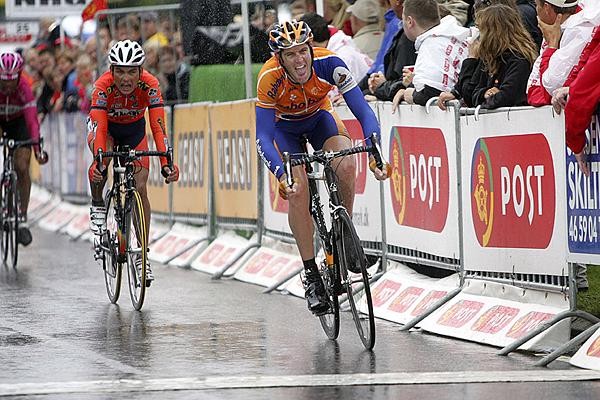Rory Sutherland interview: Rory's Story
With a number of high profile doping cases recently being awarded, including that of former Phonak...

With a number of high profile doping cases recently being awarded, including that of former Phonak rider Tyler Hamilton, the cycling public - and public in general - may be starting to assume an convicted cyclist is guilty until proven otherwise. However, as the case of young Australian rider Rory Sutherland demonstrates, these lines are not so clear cut.
Although advised not to engage with the media, the 24 year-old from Canberra chose to respond to an invitation from Cyclingnews' Anthony Tan to hear his story.
On December 21 last year, the 24 year-old from Canberra was dealt a career-threatening blow. He tested positive for a little-known drug called Clomiphene - practically unheard of in endurance sports and not expected to produce any performance enhancing effect according to some medical experts, although it is on WADA's banned list because it can inhibit estrogen, thereby increasing the body's testosterone production. Regardless, the disciplinary committee of the Belgian Cycling Federation (with whom he holds his racing licence) chose to suspend the then 23 year-old for two years with a nine-month conditional sentence.
When contacted by Cyclingnews soon after the news broke, Sutherland claims he had no prior knowledge of the substance until he was told it was present in his body at the time he was tested, which occurred at the Deutschland Tour (Tour of Germany) in August 2005. Evidence reveals the concentration of Clomiphene in his body was in the range of 5-10 nanograms - in other words, 5-10 billionths of a gram - and it was this argument that was put forward to the disciplinary committee at his November 23 hearing.
Furthermore, an independent investigation committee wrote in its report that it did not find "any indication that Sutherland was directly or indirectly implicated in expressing interest in or in using substances classified as doping agents" and that "Sutherland took the substance unknowingly."
Now sitting at his home in Canberra, supported by family and friends, Sutherland isn't too sure what to do. Should he appeal to the sport's highest authority, the Court of Arbitration for Sport (CAS)?
"This is a very difficult question for me to answer," he says.
Get The Leadout Newsletter
The latest race content, interviews, features, reviews and expert buying guides, direct to your inbox!
Click here to read the rest of the story.